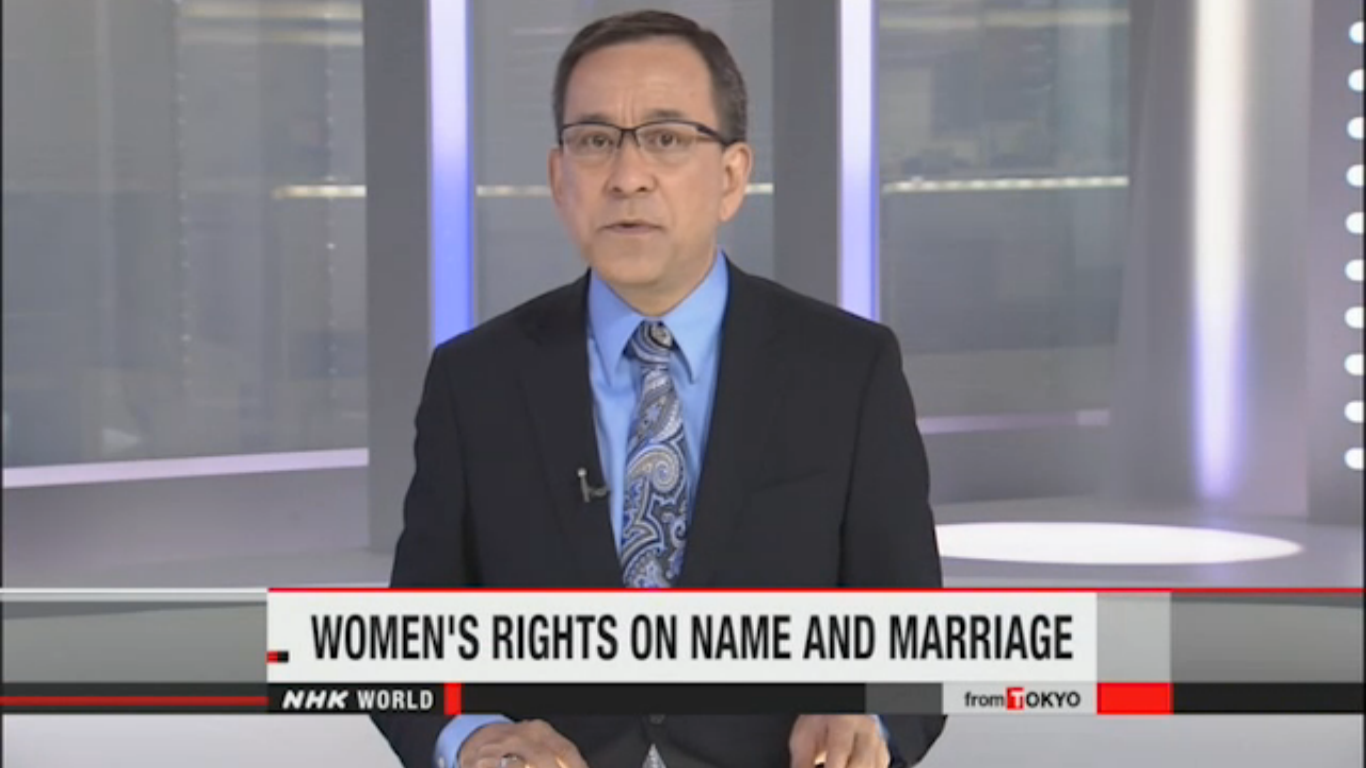Japan’s constitution guarantees equal rights for women, and the lawsuits questioning the constitutionality of two civil code articles have been brought before the Supreme Court. The provisions relate to marriage and gender equality.
One article states that married Japanese couples should use a single surname. The other says women cannot remarry within 180 days of getting a divorce.
The one-surname policy has far-reaching consequences for some. One couple, Kotaro Fukushima and Michiyo Ono chose not to register their marriage, because both of their parents expected them to retain their surnames. The upshot of their decisions is that the pair is not legally married. Unless they take the issue to court, their two daughters have to use their mother’s surname.
The couple will not qualify for the usual inheritance tax break when one of them dies. Hospitals normally ask a spouse to sign their consent before surgery, but since the couple is not legally married, that consent may not be enough. “We may not be recognized as a family. That’s what I’m afraid of,” Kotaro Fukushima says.
Japan’s government conducted a survey on the issue 3 years ago. The result showed public opinion running neck and neck, for and against allowing the use of different surnames. An NHK survey shows similar results.
Supporters of amending the article say it will be more convenient for their work if people can retain their names from before their marriage. They also say separate names are needed to preserve family names amid the declining birthrate.
Opponents believe the use of separate names will destroy family ties, as they say people may lose the sense of unity among family members.
The proposal for changing the law has been talked about for more than two decades, but nothing has happened. The United Nations has recommended that Japan revise what it sees as discriminatory legislation.
The other civil code provision to go before the Court bans women from remarrying within 180 days of a divorce. The rule is to avert disputes over the paternity of children. The Civil Code also stipulates that children born to women within 300 days of a divorce will be recognized as offspring of their previous husbands. It further stipulates children born at least 200 days after their mothers’ remarriage will be acknowledged as offspring of their mothers’ current husbands. The provision was drawn up under the notion that if their mothers remarry soon after a divorce, children’s fathers cannot be identified.
A plaintiff who couldn’t get married right after her divorce, sent a letter to NHK. She questions why, in an age of DNA paternity testing, such legal provisions are necessary. She says all she wanted was to turn her happiness, which she worked hard to achieve, into a marriage.
The two provisions in question date back to the 19th century. Some say they are outdated and do not reflect either advancements in technology or social changes. The Supreme Court is expected to hand down rulings as early as the end of this year.
Watch the Video and Read more here…
credits to: Mitsuko Nishikawa, NHK



















